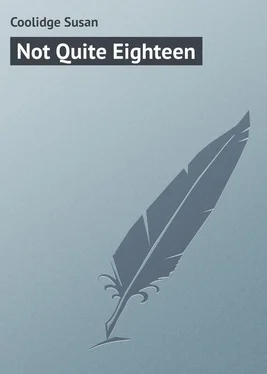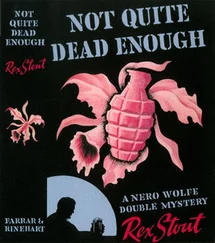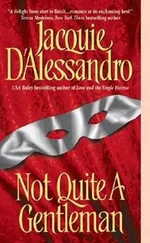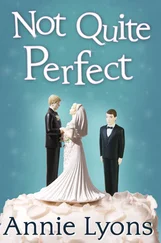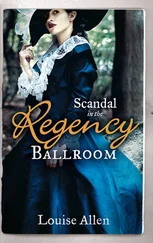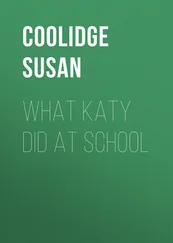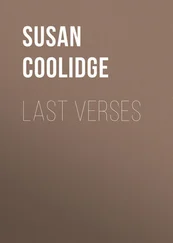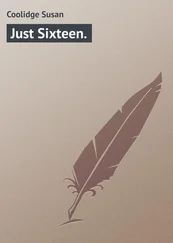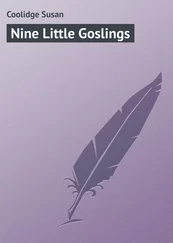Susan Coolidge - Not Quite Eighteen
Здесь есть возможность читать онлайн «Susan Coolidge - Not Quite Eighteen» — ознакомительный отрывок электронной книги совершенно бесплатно, а после прочтения отрывка купить полную версию. В некоторых случаях можно слушать аудио, скачать через торрент в формате fb2 и присутствует краткое содержание. Жанр: foreign_prose, foreign_children, на английском языке. Описание произведения, (предисловие) а так же отзывы посетителей доступны на портале библиотеки ЛибКат.
- Название:Not Quite Eighteen
- Автор:
- Жанр:
- Год:неизвестен
- ISBN:нет данных
- Рейтинг книги:4 / 5. Голосов: 1
-
Избранное:Добавить в избранное
- Отзывы:
-
Ваша оценка:
- 80
- 1
- 2
- 3
- 4
- 5
Not Quite Eighteen: краткое содержание, описание и аннотация
Предлагаем к чтению аннотацию, описание, краткое содержание или предисловие (зависит от того, что написал сам автор книги «Not Quite Eighteen»). Если вы не нашли необходимую информацию о книге — напишите в комментариях, мы постараемся отыскать её.
Not Quite Eighteen — читать онлайн ознакомительный отрывок
Ниже представлен текст книги, разбитый по страницам. Система сохранения места последней прочитанной страницы, позволяет с удобством читать онлайн бесплатно книгу «Not Quite Eighteen», без необходимости каждый раз заново искать на чём Вы остановились. Поставьте закладку, и сможете в любой момент перейти на страницу, на которой закончили чтение.
Интервал:
Закладка:
Coolidge Susan
Not Quite Eighteen
HOW BUNNY BROUGHT GOOD LUCK
IT was Midsummer's Day, that delightful point toward which the whole year climbs, and from which it slips off like an ebbing wave in the direction of the distant winter. No wonder that superstitious people in old times gave this day to the fairies, for it is the most beautiful day of all. The world seems full of bird-songs, sunshine, and flower-smells then; storm and sorrow appear impossible things; the barest and ugliest spot takes on a brief charm and, for the moment, seems lovely and desirable.
"That's a picturesque old place," said a lady on the back seat of the big wagon in which Hiram Swift was taking his summer boarders to drive.
They were passing a low, wide farmhouse, gray from want of paint, with a shabby barn and sheds attached, all overarched by tall elms. The narrow hay-field and the vegetable-patch ended in a rocky hillside, with its steep ledges, overgrown and topped with tall pines and firs, which made a dense green background to the old buildings.
"I don't know about its being like a picter," said Hiram, dryly, as he flicked away a fly from the shoulder of his horse, "but it isn't much by way of a farm. That bit of hay-field is about all the land there is that's worth anything; the rest is all rock. I guess the Widow Gale doesn't take much comfort in its bein' picturesque. She'd be glad enough to have the land made flat, if she could."
"Oh, is that the Gale farm, where the silver-mine is said to be?"
"Yes, marm; at least, it's the farm where the man lived that, 'cordin' to what folks say, said he'd found a silver-mine. I don't take a great deal of stock in the story myself."
"A silver-mine! That sounds interesting," said a pretty girl on the front seat, who had been driving the horses half the way, aided and abetted by Hiram, with whom she was a prime favorite. "Tell me about it, Mr. Swift. Is it a story, and when did it all happen?"
"Well, I don't know as it ever did happen," responded the farmer, cautiously. "All I know for certain is, that my father used to tell a story that, before I was born (nigh on to sixty years ago, that must have been), Squire Asy Allen – that used to live up to that red house on North Street, where you bought the crockery mug, you know, Miss Rose – come up one day in a great hurry to catch the stage, with a lump of rock tied in his handkerchief. Old Roger Gale had found it, he said, and they thought it was silver ore; and the Squire was a-takin' it down to New Haven to get it analyzed. My father, he saw the rock, but he didn't think much of it from the looks, till the Squire got back ten days afterward and said the New Haven professor pronounced it silver, sure enough, and a rich specimen; and any man who owned a mine of it had his fortune made, he said. Then, of course, the township got excited, and everybody talked silver, and there was a great to-do."
"And why didn't they go to work on the mine at once?" asked the pretty girl.
"Well, you see, unfortunately, no one knew where it was, and old Roger Gale had taken that particular day, of all others, to fall off his hay-riggin' and break his neck, and he hadn't happened to mention to any one before doing so where he found the rock! He was a close-mouthed old chap, Roger was. For ten years after that, folks that hadn't anything else to do went about hunting for the silver-mine, but they gradooally got tired, and now it's nothin' more than an old story. Does to amuse boarders with in the summer," concluded Mr. Swift, with a twinkle. "For my part, I don't believe there ever was a mine."
"But there was the piece of ore to prove it."
"Oh, that don't prove anything, because it got lost. No one knows what became of it. An' sixty years is long enough for a story to get exaggerated in."
"I don't see why there shouldn't be silver in Beulah township," remarked the lady on the back seat. "You have all kinds of other minerals here, – soapstone and mica and emery and tourmalines and beryls."
"Well, ma'am, I don't see nuther, unless, mebbe, it's the Lord's will there shouldn't be."
"It would be so interesting if the mine could be found!" said the pretty girl.
"It would be so , especially to the Gale family, – that is, if it was found on their land. The widow's a smart, capable woman, but it's as much as she can do, turn and twist how she may, to make both ends meet. And there's that boy of hers, a likely boy as ever you see, and just hungry for book-l'arnin', the minister says. The chance of an eddication would be just everything to him, and the widow can't give him one."
"It's really a romance," said the pretty girl, carelessly, the wants and cravings of others slipping off her young sympathies easily.
Then the horses reached the top of the long hill they had been climbing, Hiram put on the brake, and they began to grind down a hill equally long, with a soft panorama of plumy tree-clad summits before them, shimmering in the June sunshine. Drives in Beulah township were apt to be rather perpendicular, however you took them.
Some one, high up on the hill behind the farmhouse, heard the clank of the brakes, and lifted up her head to listen. It was Hester Gale, – a brown little girl, with quick dark eyes, and a mane of curly chestnut hair, only too apt to get into tangles. She was just eight years old, and to her the old farmstead, which the neighbors scorned as worthless, was a sort of enchanted land, full of delights and surprises, – hiding-places which no one but herself knew, rocks and thickets where she was sure real fairies dwelt, and cubby-houses sacred to the use of "Bunny," who was her sole playmate and companion, and the confidant to whom she told all her plans and secrets.
Bunny was a doll, – an old-fashioned doll, carved out of a solid piece of hickory-wood, with a stern expression of face, and a perfectly unyielding figure; but a doll whom Hester loved above all things. Her mother and her mother's mother had played with Bunny, but this only made her the dearer.
The two sat together between the gnarled roots of an old spruce which grew near the edge of a steep little cliff. It was one of the loneliest parts of the rocky hillside, and the hardest to get at. Hester liked it better than any of her other hiding-places, because no one but herself ever came there.
Bunny lay in her lap, and Hester was in the middle of a story, when she stopped to listen to the wagon grinding down-hill.
"So the little chicken said, 'Peep! Peep!' and started off to see what the big yellow fox was like," she went on. "That was a silly thing for her to do, wasn't it, Bunny? because foxes aren't a bit nice to chickens. But the little chicken didn't know any better, and she wouldn't listen to the old hens when they told her how foolish she was. That was wrong, because it's naughty to dis – dis – apute your elders, mother says; children that do are almost always sorry afterward.
"Well, she hadn't gone far before she heard a rustle in the bushes on one side. She thought it was the fox, and then she did feel frightened, you'd better believe, and all the things she meant to say to him went straight out of her head. But it wasn't the fox that time; it was a teeny-weeny little striped squirrel, and he just said, 'It's a sightly day, isn't it?' and, without waiting for an answer, ran up a tree. So the chicken didn't mind him a bit.
"Then, by and by, when she had gone a long way farther off from home, she heard another rustle. It was just like – Oh, what's that, Bunny?"
Hester stopped short, and I am sorry to say that Bunny never heard the end of the chicken story, for the rustle resolved itself into – what do you think?
It was a fox! A real fox!
There he stood on the hillside, gazing straight at Hester, with his yellow brush waving behind him, and his eyes looking as sharp as the row of gleaming teeth beneath them. Foxes were rare animals in the Beulah region. Hester had never seen one before; but she had seen the picture of a fox in one of Roger's books, so she knew what it was.
Читать дальшеИнтервал:
Закладка:
Похожие книги на «Not Quite Eighteen»
Представляем Вашему вниманию похожие книги на «Not Quite Eighteen» списком для выбора. Мы отобрали схожую по названию и смыслу литературу в надежде предоставить читателям больше вариантов отыскать новые, интересные, ещё непрочитанные произведения.
Обсуждение, отзывы о книге «Not Quite Eighteen» и просто собственные мнения читателей. Оставьте ваши комментарии, напишите, что Вы думаете о произведении, его смысле или главных героях. Укажите что конкретно понравилось, а что нет, и почему Вы так считаете.
